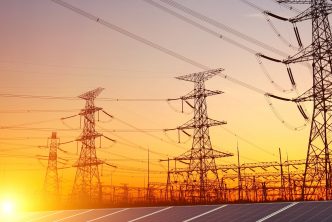Intertwined Conundrum
The global oil and gas industry is vulnerable to the economic effects of the COVID-19 pandemic. The International Energy Agency (IEA) suggests that natural gas is well on course to its largest annual decline in history. Global demand for gas is anticipated to decline by 4 per cent (150 billion cubic metres) in 2020.[1] The longer-term effects of this decline will be ominous and will impact the future.
This situation does not bode well for the African economies that depend on mined resources like gas. Future gas consumption in Africa is expected to be driven by industrial use and electricity generation. Gas production for domestic use in West Africa (excluding Nigeria) is expected to achieve an average growth of about 6 per cent in the next few years. This reality means that countries that produce gas will have a greater demand for domestic consumption in the coming years.
A more profound crisis looms in Nigeria. Nigeria produces mostly “associated gas”. This is a situation where the gas is extracted as a consequence of oil production because it is either dissolved into or above the crude oil. The COVID-19 pandemic revealed the inherent vulnerabilities in Nigeria’s oil and gas industry to global oil prices. Although crude oil and gas prices are slowly rising after the early price crash in March and April 2020, any sustained decline in prices could lead to a drop in oil production which, invariably, will lead to a drop in the production of associated gas. Such a decrease in gas supply will impact domestic consumption; including gas available for power generation.
Nigeria’s oil-dependent economy is fragile and subject to the actions of the largest oil conglomerates[2]. The country must develop its abundant non-associated gas reserves, both in the inland basin and Niger Delta basin, to safeguard its domestic gas economy. While exportation of gas is profitable, the development priority should be to leverage gas production to develop the domestic economy. Nigeria’s primary focus should be to improve power generation given the direct causal relationship between electricity access, economic progress and poverty reduction.
Gas Impetus
Nigeria is more of a gas-country than an oil one. With about 182 trillion cubic feet of gas – projected to grow by about 70 per cent by 2025 – Nigeria can be a key player in the global natural gas market. This potential may not be realised with a continued reliance on just associated gas. Development of the sector depends on a whole-of-government commitment to exploit and utilise the natural gas asset.
A dilemma in Nigeria’s petroleum industry is how to create a robust domestic gas economy. This is ironic given the poor state of electricity generation in the country (which should create a demand for natural gas). Likewise, the deficit in industrial capacity (and the resultant high rate of unemployment) should create the impetus to develop the sector. Furthermore, the global shift to climate resilience creates the economic and financial incentives for increased exploitation and utilisation of the natural gas to reduce flare-outs.
Nigeria’s gas industry should focus on three strategic imperatives: gas for power generation, gas-based industrialisation, and gas for high-valued exports. The immediate imperative is increased utilisation of gas for power generation because of the ripple effect on the economy. Developing the gas-to-power subsector will lay the foundations for a robust domestic gas market.
The global drop in oil prices in 2020 presents Nigeria with an opportunity to recalibrate its gas to power sector. The country can effectively develop and expand existing pipeline infrastructure to optimise the utilisation of gas for the benefit of the domestic market, especially the power sector. Solving the challenges in the domestic gas market will not only improve investments in the oil and gas sector but will also help improve power generation, which will essentially increase investment in other sectors of the economy.
Nigeria can unlock its domestic gas to power economy by exploring its inland gas basins. There are seven gas basins in the country including the Niger Delta[3], Anambra, Benin, Benue Trough (Gongola), Bida, Chad and Sokoto Basins. Apart from the Niger Delta, there has been minimal exploitation in the other gas basins. The nature of the gas reserves in the inland basins is such that they can accommodate between 30MW and 100MW power plants[4]. Gas-for-power can unlock the potential in Nigeria’s natural gas sector.
Inadequate gas infrastructure is a significant challenge for the industry. Increasing the infrastructure, such as pipelines and central processing facilities, will encourage exploration of gas in the inland basins. Stalled and abandoned gas pipeline infrastructure projects should also be reassessed for completion.
The major challenge is the lack of a gas infrastructure blueprint to guide investments in the sector and provide clarity to investors on the government’s plans. While there is a role for the government, it does not have adequate resources to build out the required infrastructure. Even if it did, its role should be to set the enabling environment to enable private sector investments. The government should never be responsible for what the markets are better equipped to do.
The current administration has shown some commitment to the sector. While the government missed its plan to complete 2,500 kilometres of gas pipeline infrastructure by December 2018, it has restated its commitment by earmarking funds to complete critical projects like the East-West gas pipeline and the Abuja-Kaduna-Kano (AKK) pipeline.
Nigeria needs to increase investments in gas infrastructure to enable increased utilisation of gas for power generation. This challenge requires an ecosystem approach to the solution. The government must work with gas industry operatives to develop a gas infrastructure blueprint that is the framework to enable private sector investments in the sector. Similarly, the government must work with the National Assembly to ensure passage of the Petroleum Industry Bill to provide the framework for gas sector development under an enabling fiscal regime.
Challenges Involved in Implementing the Solution
Inadequate funding for infrastructural development also poses a limitation to infrastructure development. The lack of adequate evacuation infrastructure continues to hinder the utilisation of available gas capacity for the benefit of the power sector. With a majority of power plants located in the southern part of the country, inadequate gas pipeline infrastructure not only prevents better distribution of gas for domestic use in sectors of the economy but also the evacuation of stranded gas.
The risks involved in funding domestic gas infrastructure projects contribute to inadequate, unavailable and inaccessible capital. Factors such as underfunding of cash calls, regulatory uncertainty and security of loans increase the risks involved in funding gas infrastructure projects. In many cases where Joint Venture partners have agreed to develop a natural gas project through cash calls, it is often delayed by the low commitment of one or other partners to fund the cash call. There are also regulatory uncertainties caused by changes in gas policies and regulations, changes in grants and authorisations, change in government and delays in the passing of supporting laws[5].
Lack of dedicated funding vehicles to develop natural gas projects further limits access to affordable capital. Therefore, access to funding that enables lower borrowing rates is needed to encourage investment in domestic gas infrastructure. The lack of dedicated funding for domestic gas projects is partly caused by the inability of government entities to secure debt financing due to already existing loans from international agencies[6].
As the largest domestic consumer of natural gas in Nigeria, the inability of the generation companies to pay for the gas purchased has inhibited the development of the domestic gas market. The inability to pay is a result of the liquidity crisis[7] in Nigeria’s electricity supply industry that was well over N1.7 trillion[8] as at the end of 2019. The liquidity challenge resulted in rising debts to gas suppliers and discourages further investment in domestic gas infrastructure.
The current fiscal, political, and regulatory environment would also discourage further explorations in the gas basins to satisfy the domestic economy. The current climate does not provide revenue assurance from off-takers. Security of transactions is also not assured as existing transactions are mostly performed based on best-endeavours as the existing contracts are not implemented.
Navigating the Challenges
Some of the inland basin reserves have the potential to contribute significantly to the growth of distributed power generation in Nigeria. However, for the domestic market to become attractive to gas producers, the government should work with the private sector to establish the optimal financing framework.
A contract-based market is required to develop the gas to power sector and attract investments. The Federal Government must seize the opportunity for investments in the gas sector by creating a more investor-attractive environment. The sector can also secure investments by activating critical industry contracts. Better funding (through these investments) will help improve the availability of gas for the development of the power sector.
Efforts to increase inland exploration of gas for power generation will require the Federal Government to strengthen Nigeria’s legal, regulatory, and fiscal frameworks, and encourage a willing seller-willing buyer contracting model. This will also resolve the liquidity challenge in the power sector and improve the generation company’s ability to pay its gas suppliers. The government should work with its partners to resolve the indiscipline in the market that results in the liquidity crisis.
Until the time when Nigeria increases investments in gas infrastructure, power generation plants can be co-located with gas production infrastructure. The proximity reduces the cost of gas transportation. Such arrangements would allow for distributed generation, which could generate power for areas within areas that require shorter transmission distances.
Conclusion
Solving domestic gas market issues will not only improve investments in the oil and gas sector but will also improve power generation, which will essentially increase investment in other sectors of the economy. In 2018, Nigeria imported over $US48 billion worth of goods[9]. Nigeria can achieve significant dollar savings on merchandise importation with an increased power supply to industries. This goal is dependent, amongst many other factors, on increased gas supply for power generation.
Reference
[1] IEA (2020). Gas 2020: Analysing the impact of the Covid-19 pandemic on global natural gas markets. Retrieved from https://www.iea.org/reports/gas-2020
[2]United States of America, Russia and Saudi Arabia
[3] Basin, which is divided into onshore, continental shelf and offshore shelves.
[4] According to a United Kingdom Nigeria Infrastructure Advisory Facility (UKNIAF) II unpublished note on Potentials of Nigeria’s inland basins for gas supply to power.
[5]. For example, the delay in the passage of the Petroleum Industry Bill (PIB) has hindered the development of some non-associated gas (NAG) reserves.
[6]. For example, the World Bank Negative Pledge prevents Government entities from granting extensive security on public assets. Also, debt financiers require line of sight over revenue; however, the country’s constitutional requirements restrict such access.
[7] The inability of the electricity distribution companies to collect payment from their customers and remit payment up the electricity value chain has led to a crisis in the sector. The challenges are compounded by collection losses (inability to collected revenue from consumers), commercial losses (energy use that is unbilled to the consumers) and technical losses (resulting from weak infrastructure).
[8] Punuka Attorney and Solicitors (2019). Managing Liquidity Crisis in the Energy Sector in the COVID-19 Pandemic Policy Trends, Innovation and Sector Restructuring. Retrieved from https://erranet.org/wp-content/uploads/2020/04/Webinar_on_Managing_Liquidity_Crisis_in_the_Energy_Sector_in_the_COVID_19_Pandemic_14_July_2020-1.pdf
[9] (OEC, 2019). Nigeria – About. Retrieved from https://oec.world/en/profile/country/nga







